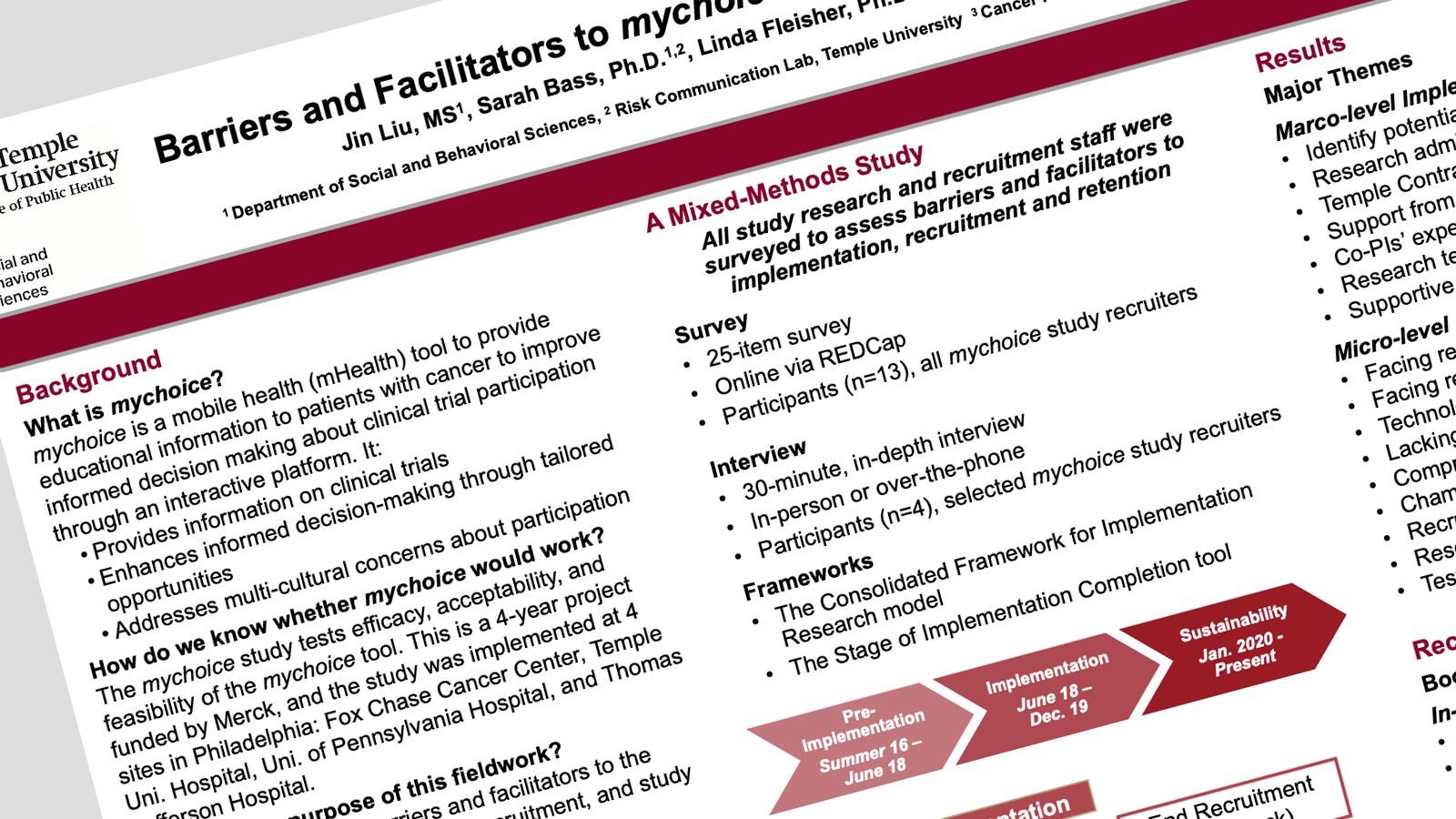
Barriers and Facilitators to the Implementation and Recruitment of the Mychoice Study
| Name | Jin Liu |
| Institution | Temple University |
| Research Field | Population Cancer Research |
| Role at Institution | Graduate Student |
| Presenter(s) | Jin Liu |
Barriers and Facilitators to the Implementation and Recruitment of the Mychoice Study
Authors, Degrees, Department: Jin Liu, MS, Sarah Bass, Ph.D., and Anne Frankel, Ph.D. Temple University. Linda Fleisher, PhD. and Cassidy Kenny, Fox Chase Cancer Center.
Background and Purpose: This project evaluated barriers and facilitators to recruiting patients at the sites as well as factors impacting study retention. mychoice is an culturally-developed mHealth tool delivering educational information to patients to enhance informed decision-making about participation in cancer clinical trials to improve the racial diversity of participants. It is currently being tested in a four site RCT.
Methods: This mixed-methods study utilized a 25-item survey (n=13) and structured interviews (n=4) done with study recruiters at cancer treatment centers to examine mychoice recruitment processes. The Consolidated Framework for Implementation Research was used to guide data interpretation.
Results/Outcomes: Major themes included trust-building with patients with cancer, maintaining relationships with key site stakeholders, and recruiter comfort with the recruiting process. Barriers involved patient health status, availability, and technology issues that impeded participating in the intervention. Facilitators included having site and physician champions and recruiter-patient engagement.
Conclusions: Both barriers and facilitators to recruiting patients with cancer for a technology intervention were found. To address barriers, providing more structured training through scenario practices would help first-time recruiters feel more emotionally prepared to enroll patients with cancer. It is also imperative to gain support from physicians who have access to patients, can provide credibility for the study, improve the screening process and enhance the recruiter-patient relationship. Finally, recruiters should be provided training to enhance skills on how to be supportive if a participant needs assistance with study tasks. Study results can help future researchers identify prospective barriers to implementing tailored communication activities to improve patient participation in clinical trials.
Email questions and comments about this abstract to tuk40448@temple.edu.
